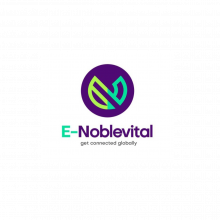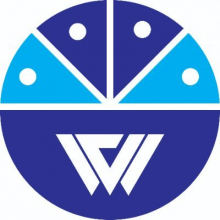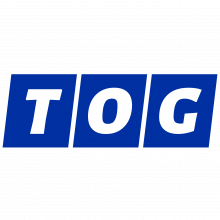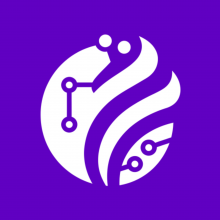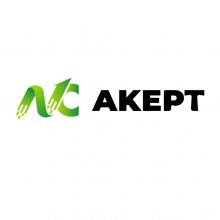
There are 58 Companies in Nigeria
that provide Google Cloud Platform (GCP) Services!
Nigeria’s ICT sector contributed 19.78% to the country’s GDP in 2024. The telecommunications segment accounts for the vast majority of this, at around $7.6 billion. Other important contributors are broadcasting, data center services, cloud, IT, and BPO. Nigeria’s combination of relatively stable governance, strategic location, and young and innovative population has made it an attractive destination for multinational companies.
Discover Top IT Companies in Nigeria specialized in Google Cloud Platform (GCP) and other related services. Find the best IT service providers for your projects.
Google Cloud Services represents a comprehensive suite of cloud computing solutions offered by Google. These services encompass cloud infrastructure, data storage, machine learning, analytics, and more. As businesses increasingly shift to the cloud, Google Cloud has become a vital platform for innovation, agility, and scalability.
There are many IT companies that specialize in providing Google Cloud services, offering a wide range of expertise in cloud computing, infrastructure, and data management. These companies collaborate closely with Google to deliver services tailored to businesses of all sizes and industries.
Handpicked companies • No obligation to hire • 100% risk-free
Featured Companies in Nigeria
This month, the following Google Cloud Platform (GCP) companies managed to provide an outstanding service and support. It's worth taking a look.
Vsasf Nig Ltd (Vsasf Tech) is a computer software and IT service provider company. We offer ICT Courses to individuals and organizations in Nigeria.
We help businesses grow online by building strong digital foundations, boosting visibility, and driving kosher results.
Explore Top Google Cloud Platform (GCP) Companies in Nigeria
Xpertech Solutions is one of the leading ICT and renewable energy conglomerate providing professional ICT and renewable energy services.
Fire Bee Techno Services is an ISO-Certified Blockchain and AI Development Company In india and across the world with 13+ years of experience.
SkyFig Technologies is an award-winning web & mobile app development company, Your future and vision become our mission at SkyFig we always deliver.
An Innovative IT service provider specialized in Software Development, Blockchain Development, Product Design, Artificial Intelligence, and Training.
One of Nigeria's fastest growing and leading software & MSP equipped with a strong foothold of innovative ideas, seasoned skills & ability to deliver
Empowering E-commerce Success with Expert Shopify Solutions Meet with The Ecom Mentors your go to Shopify partner agency specialize in maximize brands
Mobirevo is a Leading custom software development agency focused on web, mobile app development & saas application development.
we deliver innovative tech solutions that drive online growth for businesses across Africa, Europe, Asia, Oceania, and America.
We are a leading consulting and Training firm with very deep understanding of our customers' needs and we pride in the lasting solutions we provide.
Venworld Global is a registered software development and media solutions company thriving to take your company setups to the next phase of development
Tuplea ICT Concepts, a leading digital solutions agency in Ibadan, offers friendly ICT training online and onsite in web, software, design, and more.
Best website design & development company in Nigeria
We provide exceptional IT and support services that enable businesses to achieve their goals, improve efficiency, and stay ahead of the competition.
Collaborate | Innovate | Create
Rehub Developers builds scalable software, APIs, automation, and AI tools for startups, SMEs, and enterprises, your satisfaction is our priority.
We offer many services, including web design, mobile app development, software development, SEO, and cloud migration services.
Accelerate Your Business Growth with Sparktopus
OmoolaEx is a Nigerian IT consulting firm helping businesses navigate digital transformation through Strategic IT guidance & trusted implementation.
A software development company that helps non-technical founders bring their software ideas to life.
AKEPT offers branding, tech, and media services to help startups grow. We earn from services/courses; spend on staff, tools, and content.
Skillsquared INC is a premier digital development company, specializing in website & mobile app development, CRM solutions, and digital marketing.
Filter Google Cloud Platform (GCP) Companies in Nigeria by Cities
Find the right tech company near you or from a specific city. Some of the best companies might be located in smaller cities.
Find more Google Cloud Platform (GCP) companies around the world
TechBehemoths is the world's most advanced and user-friendly platform to match IT Companies with real clients without hustle.
The ICT Industry in Nigeria : 2025 Report
Nigeria’s ICT sector contributed 19.78% to the country’s GDP in 2024. The telecommunications segment accounts for the vast majority of this, at around $7.6 billion. Other important contributors are broadcasting, data center services, cloud, IT, and BPO.
Nigeria’s combination of relatively stable governance, strategic location, and young and innovative population has made it an attractive destination for multinational companies. Several notable firms, such as Oracle, IBM, Microsoft, Cisco, HP, and SAP, have offices in Nairobi, and some have based their entire African operations from these offices.
Why You Should Work With Nigerian IT Companies
Digital service providers in the cloud and BPO markets are primarily involved in the provision, rather than the development, of services, whereas Nigerian firms are more prevalent in the fintech and e-commerce markets. The physical technology required for the delivery of digital services is typically imported, and it is not clear that Nigeria could produce these products more efficiently.
A key strength in the digital services market is the acceptance of mobile services. Any consumer solution entering the market would have to be mobile-compatible. Mobile healthcare services are expected to grow particularly rapidly as the sophistication of these offerings increases.
In addition, the CEO of Toniceli considers that one of the competitive advantages Nigerian IT companies have compared to those established in neighboring countries is the challenging conditions. Here in Nigeria, we're used to working in challenging and stressful environments. This gives us grit, especially when faced with challenging projects. It's just a part of our nature to face challenges headlong and not to back down.
What to Pay Attention to When Working With Nigerian IT Companies and Web Agencies
On the consumer side, it is vital that any proposed digital service offering be mobile-compatible due to the prevalence of mobile usage in Nigeria. Furthermore, smartphone penetration in the region is steadily increasing, thus increasing the sophistication of viable digital service offerings.
Given the acceptance of fintech by the Nigerian population, a possible route to entry in the consumer market is to acquire one of the many smaller fintech firms in the industry. This would resolve some of the primary barriers to entry, most specifically bureaucratic red tape and a lack of local knowledge.
On the corporate side, the most effective route to entry is likely through partnerships with smaller local resellers. This model is already popular in the Nigerian market. A key differentiating feature here will be how well the service adapts to the Nigerian market.
How Reliable Are Nigerian-based IT Companies?
Considered to be one of the biggest African IT hubs, Nigerian web agencies and IT companies compete only with Ethiopian ones in terms of reliability. As many foreign companies have already invested and thus developed the local IT infrastructure and industry overall, Nigerian IT companies find it easier than other neighboring countries to enter the global market and provide their services at accessible prices.
How Does the Nigerian IT Industry Relate to the Neighboring Countries?
Nigeria is actively trying to establish itself as a key ICT hub in the East African region. The country appears to be making good progress in this regard, helped by having a strong connectivity infrastructure and a young, innovative population. Despite this, the country currently faces considerable political uncertainty, and issues surrounding the transparency of tenders remain a major barrier to growth.
Although Nigeria’s score in the Global Innovation Index 2024 is not high in absolute terms, it ranks 113th in the world. This supports the conjecture that businesses, government, and consumers will be receptive to new technologies, as ICT has already had a substantial impact on the Nigerian economy.
The Business Environment in Nigeria
The CEO of Toniceli - a leading Nigerian IT company, Oluwayomi Olabanjo, states that the Nigerian business environment is growing rapidly. Most business environments are still very much clustered in the city of Lagos, but over the years, there's been an expansion in economic clusters in other cities. There had been challenges in infrastructure, policies, power, and access to professional training and education. However, things have been getting better over time, especially with the coalition of private and public enterprises addressing these challenges headlong. I would say the biggest factor we've had working for us in the Nigerian market is the availability of youthful talent and the increasing flow of foreign and local capital into the market.
What Makes Nigeria Attractive for International IT Companies?
Oluwayomi Olabanjo mentions on this topic that what makes it attractive is the abundant supply of youthful talent. However, unstable government policies, infrastructure, and power shortages are challenges, making it unattractive for international IT companies.
Yet, the Nigerian Communications Commission had been doing quite a lot with the startup bill and also with the establishment of public-private incubator programs within the country. I really do believe they should be given credit for this.
Lagos, Ibadan - Best Cities for Doing IT business in Nigeria
Lagos, because it has always been the economic hub of the country, hence the IT industry has found it quite easier to experience growth in that space.
Ibadan due to the fact that it is a fast-growing economic hub and also, and there's less capital expense in setting up and running a company here. - mentioned Oluwayomi Olabanjo.
What is Google Cloud Platform (GCP) and what are its benefits for your projects?
Google Cloud Services represents a comprehensive suite of cloud computing solutions offered by Google. These services encompass cloud infrastructure, data storage, machine learning, analytics, and more. As businesses increasingly shift to the cloud, Google Cloud has become a vital platform for innovation, agility, and scalability.
There are many IT companies that specialize in providing Google Cloud services, offering a wide range of expertise in cloud computing, infrastructure, and data management. These companies collaborate closely with Google to deliver services tailored to businesses of all sizes and industries.
Reliability is a hallmark of IT companies providing Google Cloud services. They are often Google Cloud Partners or Google Cloud Certified, indicating a high level of expertise and a commitment to delivering top-notch solutions. These companies offer support throughout the cloud adoption journey, from initial planning and migration to ongoing management and optimization.
Google Cloud service providers leverage a variety of tools and technologies to deliver robust cloud solutions. They utilize Google Cloud Platform (GCP) services like Compute Engine, BigQuery, Kubernetes Engine, and TensorFlow for machine learning. Additionally, they often incorporate DevOps practices and tools for automation, monitoring, and continuous deployment.
Related services to Google Cloud encompass a broad spectrum of cloud computing and technology solutions. These include cloud consulting and strategy, cloud security services, cloud application development, cloud migration services, and managed cloud services. Organizations often seek these complementary services to enhance their cloud initiatives.
Choosing the best IT company for Google Cloud services involves careful evaluation. Look for companies with Google Cloud Partner status, industry-specific expertise, and a track record of successful cloud projects. It's essential to align your choice with your project's complexity, budget, and specific business needs.
Google Cloud providers are needed for various project types, including:
-
Cloud Migration: Moving on-premises infrastructure and applications to the cloud.
-
Big Data Analytics: Leveraging Google Cloud's data analytics and machine learning capabilities.
-
Application Modernization: Updating and optimizing legacy applications for the cloud.
-
Multi-Cloud Strategies: Managing hybrid and multi-cloud environments.
-
DevOps Implementation: Integrating DevOps practices for agile development and deployment.
Companies across various sectors can benefit from Google Cloud services. This includes startups seeking scalable cloud resources, enterprises looking to modernize IT infrastructure, e-commerce businesses requiring robust and reliable hosting, healthcare providers managing sensitive patient data, and financial institutions seeking secure and compliant cloud solutions.
When considering the cost of Google Cloud services, it's essential to understand that pricing can vary widely based on usage, services deployed, and location. Google Cloud offers flexible billing options, including pay-as-you-go and custom pricing for enterprises.
While small businesses may spend hundreds of dollars per month, large enterprises can invest significantly more in their cloud infrastructure. Costs in the US, UK, and Australia may differ due to regional factors and currency exchange rates. It's advisable to work closely with Google Cloud service providers to estimate and optimize costs based on your specific cloud requirements and budget constraints.










